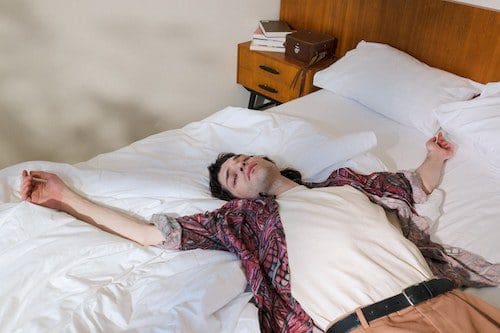Have you ever gone out to enjoy a night with friends and woke up the next morning feeling confused and anxious, not even knowing how you got home? When you ask your friends, they tell you they spent the evening with you talking and drinking. They say you got into your car and drove yourself home when the evening ended. If something like this has happened to you, you might have experienced an alcohol-induced blackout.
What is an Alcohol-Induced Blackout?
An alcohol-induced blackout is memory loss that results in gaps in memory during the time period of intoxication. The drink acts on the part of the brain called the hippocampus, which is responsible for memory formation and storage. Drinking a lot in a short time can affect the hippocampus in a way that allows the person to remember only a few moments at a time before forgetting them. Since memories disappear, it is common for the person in the blackout to repeat themselves. Otherwise, they may appear to be functioning as normal. The greater their intake, the more long-term and severe their memory loss.
Types of Alcoholic-Induced Blackouts
During an alcohol-induced blackout, the person remains conscious. Most individuals appear fully aware and in control of what they are doing. There are two types of blackouts: complete (en-bloc) and fragmentary (partial or gray-out).
- When a person experiences a complete blackout, they have complete amnesia of a specific period of significant events they normally would have remembered under usual circumstances. Regardless of the circumstances, the memories cannot be recalled. They are permanently lost.
- When a person experiences a fragmentary blackout, they may not be aware of missing memories, but they can usually remember the forgotten memories when given reminders or cues.
What Causes an Alcohol-Induced Blackout?
These blackouts are usually caused when a person’s blood alcohol concentration levels (BAC) increase rapidly. For some people, blackouts begin to occur when their BAC levels reach around 0.14 or 14%, about twice the legal driving limit in most states. Almost everyone will experience blackouts when their BAC levels reach 0.20 or 20%. When a person takes anti-anxiety or sleep medications, alcohol-induced blackouts can occur at much lower blood alcohol concentration levels.
Factors that affect the blood concentration level that will cause a person to experience an alcohol-induced blackout include:
- Size
- Gender
- What and when they have last eaten
- The size and strength of their drinks
- The speed at which they drink
Alcohol-induced blackouts commonly occur because of binge drinking.
Are Alcohol-Induced Blackouts Dangerous?
According to the National Institute on Alcohol Abuse and Alcoholism, even one alcohol-induced blackout is dangerous. It continues to enter the bloodstream through a person’s intestines and stomach after they have stopped drinking, causing their BAC to continue to rise. The higher their BAC level rises, the more they are affected by the drink. The high levels impair their decision-making and cognitive functions, decrease their motor coordination, and cloud their judgment, increasing their risk of experiencing acts of violence or being injured in car crashes or falls. Many people engage in dangerous or high-risk activities during blackouts, such as driving a vehicle, vandalizing property, having unprotected or unwanted sex, fighting, or other harmful behaviors which could result in serious legal or health consequences.
Does an Alcohol-Induced Blackout Indicate an Alcohol Use Disorder?
It was once thought that alcohol-induced blackouts were an indication of alcoholism. However, we now know that blackouts result from the rapid rise in blood alcohol levels. If a person experiences an occasional alcohol-induced blackout, it does not mean they have an alcohol use disorder. It simply means they drank too much. Studies show that approximately half of those who drink will experience a blackout at some time. But if a person has repeated blackouts, it is a strong indication they suffer from alcoholism and need to seek help.
Is It Time to Get Help?
If you or a loved one experiences alcohol-induced blackouts or struggles with an alcohol or drug addiction, now is the time to get help. Addiction is a chronic, treatable disease. Canyon Vista Recovery Center, located in Mesa, Arizona, provides treatment for substance addiction. Call and speak to a caring professional. Using a combination of clinical, medical, psychiatric, and holistic approaches, we will help you achieve your goal of sobriety.





